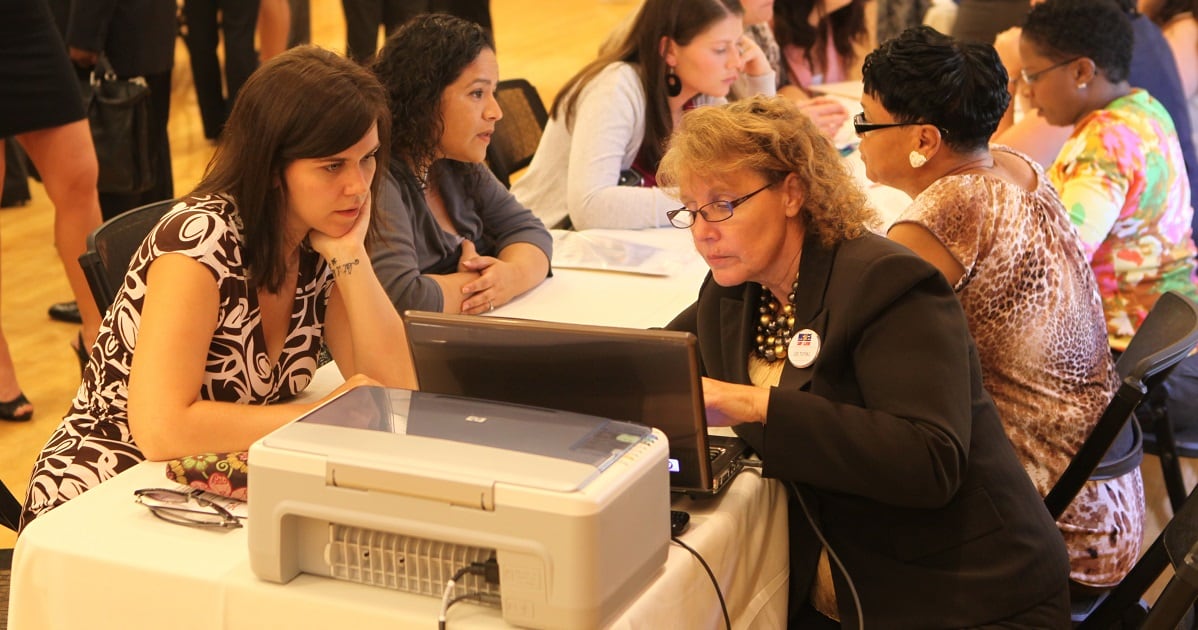Army and Air Force spouses can now apply for reimbursement of up to $500 for professional relicensing costs when they relocate with their service member – and the new policies are retroactive to Dec. 12, 2017.
Their new policies, issued last week, are designed to ease the financial burden of spouses having to renew these licenses each time they move to a new duty station. In many cases, spouses in certain fields can’t get a job in their field until they meet the requirements of that new state for a license to practice in their profession. The policies apply to active duty Army and Air Force, and Guard and Reserve on Title 10 orders.
The Navy is still working on its policy to allow this reimbursement, and expects to release it in June, according to a Navy administrative message. Information was not immediately available from the Marine Corps.
The Army and Air Force policies apply to fees paid during each permanent change of station move, so it’s not limited to one move. But reimbursement in connection with each move can’t exceed $500.
Local and state-level licensing or certifications are required in a long list of professions, ranging from dental hygienists and accountants, to doctors, hairdressers, nurses, teachers, attorneys, to name a few. The requirements vary widely from state to state, and from one profession to another.
Qualifying relicensing costs include exam and registration fees where the new duty station is located – fees required in order to engage in the same profession that the spouse was in while with the service member at the last duty station.
The reimbursement is a pilot program authorized through Dec. 31, 2022 by the fiscal 2018 National Defense Authorization Act, signed into law on Dec. 12, 2017. Family advocates have expressed frustration about the delay in implementing the program, and would like to see the pilot program extended.
“We’re really encouraged to see that it’s retroactive back to Dec. 12, 2017,” said Jen Davis, government relations deputy director for the National Military Family Association. “Even with the retroactivity, we’d like to see it expanded beyond 2022, since it took 18 months to roll out,” she said.
“We’re happy to see the Army and Air Force roll out the program,” she said. “We’ll be looking forward to seeing the Marine Corps and Navy follow suit pretty soon.”
The association will be watching to see how the reimbursement programs get rolled out, “and how they work in reality,” she said.
RELATED

Because the individual military services are responsible for both the permanent change of station move and the related reimbursements, they have the discretionary authority for the payment.
Here’s how the Air Force and Army programs will work:
Air Force: The service member seeks reimbursement through the servicing finance office. A copy of the applicable PCS orders, a copy of the spouse’s original state occupational license, and the paid receipts for items required to obtain relicensing from the new state. The servicing finance office will provide information on the forms needed for reimbursement. The costs must have been incurred and paid after the service member’s orders are authenticated, and no more than 24 months from that point.
Army: Instructions on how to apply for reimbursement can be found in the All Army Activities message, or ALARACT 036/2019. You’ll need a common access card to get the instructions.
Instructions will also eventually be available on the Military OneSource website.
Officials in the DoD state liaison office have been working for years at the state level to bring attention to state lawmakers that transferring occupational licenses from previous states is an important issue for military spouses who want to be able to continue to work in their field. A number of states have adopted at least partial measures to provide some license portability, such as temporary licensure and streamlined processes.
Karen has covered military families, quality of life and consumer issues for Military Times for more than 30 years, and is co-author of a chapter on media coverage of military families in the book "A Battle Plan for Supporting Military Families." She previously worked for newspapers in Guam, Norfolk, Jacksonville, Fla., and Athens, Ga.




